New Year Honours: Are top recipients too posh and too southern?
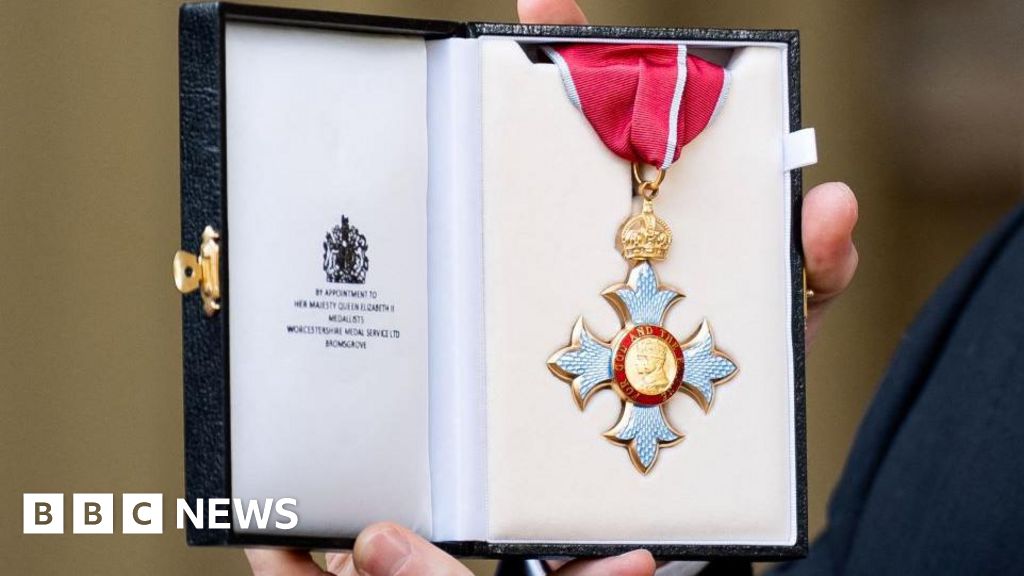
Royal correspondent
Head of data, BBC Verify
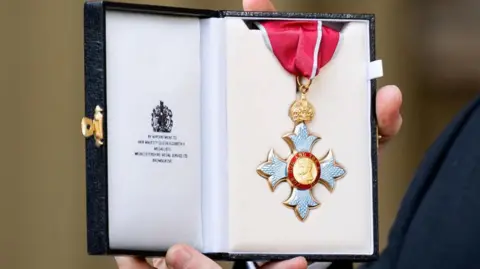 Getty Images
Getty ImagesIn the latest New Year Honours only 6% of higher awards went to people in the north of England and only 4% to people from working-class backgrounds, according to a BBC analysis of Cabinet Office data.
More than 60% of beneficiaries of “higher” awards, such as Commander of the Order of the British Empire (CBE) and knighthoods and damehoods, lived in London and south-east England.
In response, the government says it will run events encouraging a much wider range of nominations for honours, particularly in communities and places revealed to be under-represented.
“The prime minister has been clear that he wants to see representations from the length and breadth of the UK,” said a government spokesman.
Sir Keir Starmer wants the honours system to reflect the “extraordinary contributions made across every part of this country”, the spokesman said.
The prime minister, who sets the strategic direction for honours, wants them to be “awarded based on merit, regardless of background”.
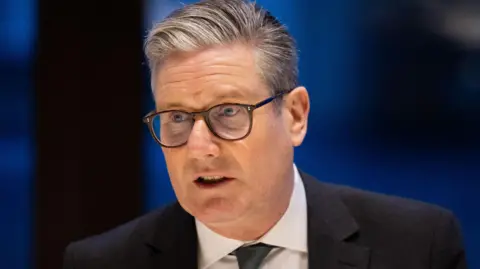 EPA
EPAThe Cabinet Office’s data for the most recent set of higher honours – for CBEs and above – show chief executives, professors and senior civil servants were common recipients.
But the government wants to ensure that honours also reach “under-represented communities and would like to see further variety in the types of work rewarded”.
“Honours should not be automatic or assumed due to a job or position an individual holds,” says the government.
It plans outreach projects and public events, involving ministers, to encourage more nominations from outside London, to reflect the PM’s wish for them to be “properly diverse and reflective of UK society”.
“We are getting on with the task by working in under-represented areas to raise awareness of the honours system and encourage more nominations,” said a government spokesman.
The analysis of those awarded the 142 most senior honours at New Year – CBEs, Order of the Bath, Companion of Honour, knighthoods and damehoods – reveals a significant regional and social divide:
- not a single person in the north-east of England
- across the combined regions of the north, north-east and north-west of England, and Yorkshire and the Humber, there were only 6% of recipients, even though it represents 23% of the UK’s population
- the West Midlands (8% of the population) received 3% of the awards
- London and south-east England, which accounts for 27% of the UK’s population, was heavily over-represented, with 61% of the higher awards
- Scotland and Wales had a share of honours similar to their populations. Northern Ireland was under-represented
- 4% of people granted top honours grew up in working-class families
- about one in 50 people offered an honour last year turned it down
- there was much more diversity in the next ranks of honours, such as OBEs, MBEs and BEMs, with 64% outside London and South East and 33% from working-class backgrounds
This year’s New Year list was presented as a chance to honour “unsung heroes and community champions” – but in practice the perceived more prestigious awards seem to be concentrated on affluent people from affluent areas.
According to the Cabinet Office’s figures, only 4% of recipients of “higher” awards had grown up in a “lower socio-economic” household – defined as parents working in jobs such as delivery driver, postal worker, security guard and retail staff – accounting for almost 40% of the workforce.
“It’s deeply unfair. It’s not based on merit; it’s based on the top-down nature of society. It needs to change and it’s out of date,” says Norman Baker, former Home Office minister and critic of the honours system.
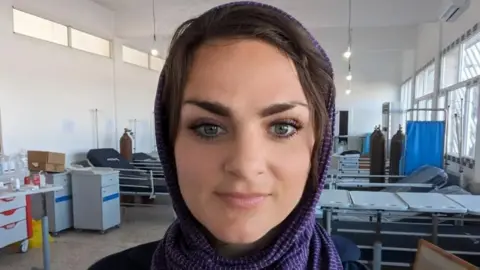
There is also a two-tier approach to the system of honours awarded to different social groups, he argues. As well as the 142 “higher” awards at New Year, there were more than 1,000 Officers of the British Empire (OBEs), Members of the British Empire (MBEs) and British Empire Medals.
“If you’re a senior civil servant you’ll end up with a top honour. If you’re a lollipop lady who works for 60 years in the freezing cold outside a school, you might get an MBE if you’re lucky,” said Mr Baker.
Private Eye magazine recently highlighted that while a group of sub-postmasters wronged in the Post Office scandal became OBEs, a senior lawyer from the firm that represented the Post Office had the higher award of CBE. That was described on X as “totally shocking” by Kevin Hollinrake, shadow secretary for levelling up, housing and communities.
“It’s time for a system shake-up,” says Rosie Lockwood of the IPPR North think tank. “The honours system is yet another example of how the establishment in this country overlooks people in regions like the North.”
Transparency International UK, which campaigns against corruption in public life, says it should be clear who nominated the recipients of honours. Is it from government departments or businesses seeking awards for their own senior staff? How many are really nominated by the public or community groups?
“It won’t help to build confidence and trust in the honours system if there’s a perception that the proximity to the seat of power and personal wealth significantly increases your chance of getting a gong,” said the group’s chief executive, Daniel Bruce.
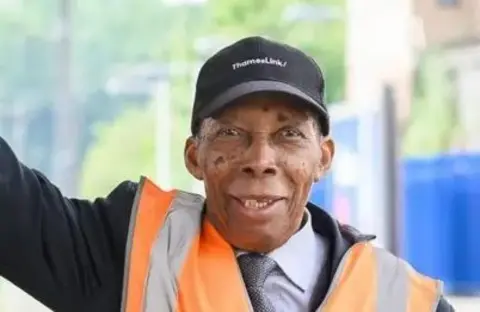
There have also been attempts to make honours more representative – with the public invited to submit nominations.
There is a more-or-less even gender split among the honours and across the whole range of honours, 12% were awarded to people from ethnic minorities, compared with 6% a decade ago.
The range of honours available is also broader now – the recipients of the first Humanitarian Medals have just been announced.
Winners have spoken about the huge positive impact of such awards, not just for themselves but for recognising the efforts of colleagues, too.
Anna Daniell, based in Manchester, was among the first group of Humanitarian Medal winners last week. She was recognised for her medical assistance helping survivors of the deadly floods in Libya in 2023.
She said it was an “amazing surprise” to receive a medal, but it was also really significant for how it “highlights the importance of humanitarian aid”.
Amanda Chadwick, from Manchester, said being made an MBE had changed her life, as it raised awareness of her children’s charity and helped her to reach more people.
Railway worker Siggy Cragwell, originally from Barbados, said he’d proudly worn his British Empire Medal awarded to him at the age of 85 last year in recognition of 62 years of working on the railways. He’d been a guest of honour at the unveiling of the Windrush monument at London’s Waterloo Station.
But there have also been questions about modernising the titles of medals, particularly about the use of “Empire”. Poet Benjamin Zephaniah turned down an OBE over its associations with colonialism.
The Cabinet Office says “about 2% of people refuse to accept honours” but didn’t give the reasons.
“Individuals decline honours for a variety of reasons and we respect their personal decision to do so,” said a Cabinet Office spokesman.
More than 20 years ago, the House of Commons public administration select committee called for a move away from the term “empire”, a proposal that was subsequently rejected by the then UK government.
Additional reporting Avi Holden and David Ainslie

World News || Latest News || U.S. News
Source link




